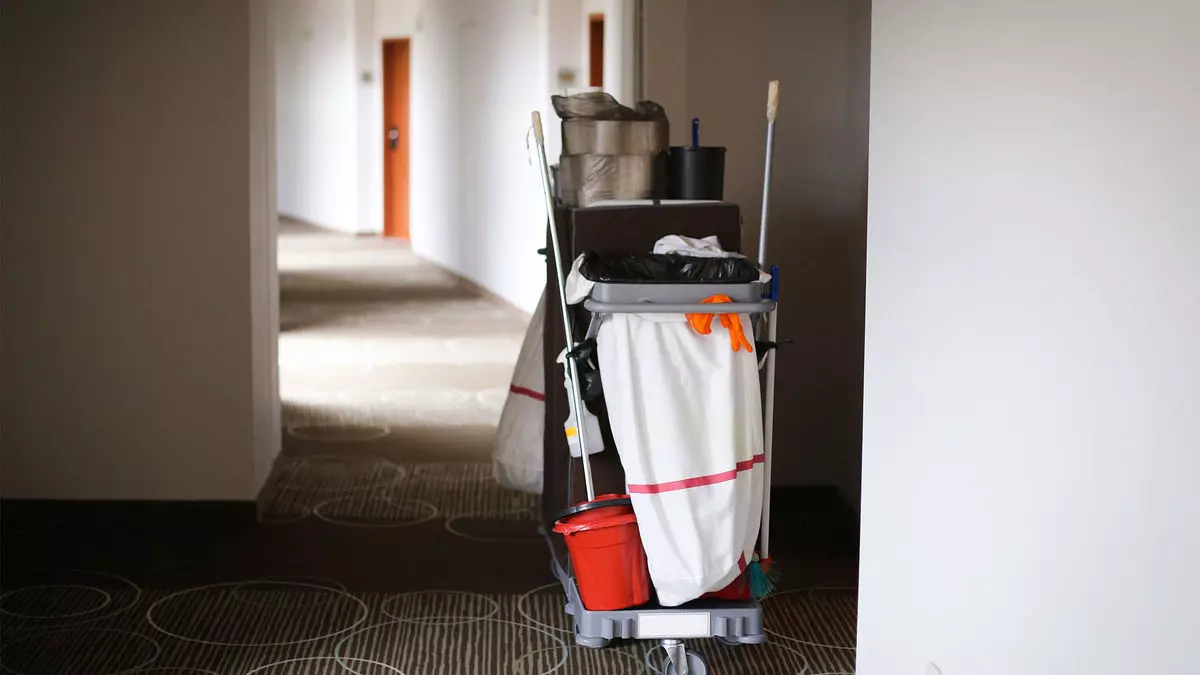In the wake of the COVID-19 pandemic, workers in the hotel industry have faced increasing challenges that reveal a stark reality behind the facade of hospitality. The plight of housekeepers like Fatima Amahmoud is emblematic of a broader struggle for fair working conditions in an industry that has historically underappreciated its most vital employees. With the hospitality sector still reeling from labor shortages and a shift in operational practices, the demands for change and improvement in working conditions have taken on new urgency. This article delves into the struggles faced by hotel workers today, highlighting the systemic issues underlying their fight for better treatment.
One of the most pressing concerns for hotel housekeepers has been the reduction of automatic daily room cleaning—a practice that has become increasingly rare in many hotels under the guise of environmental sustainability. For Amahmoud and her colleagues, this cost-cutting measure intensifies their workload significantly. With a typical quota of up to 17 rooms to clean in a single shift, the expectation to fulfill these labor demands without adequate support or staffing is unreasonable. The common practice of allowing guests to decline daily cleaning not only reduces the quality of service but also places a burden on housekeepers who contend with the resultant mess left behind, as seen in Amahmoud’s arduous experience with dog fur.
Amidst deteriorating working conditions, unionized housekeepers have firmly united to challenge these practices, seeking to restore daily cleaning as a standard amenity in major hotel chains. The Unite Here union has proactively organized strikes across various cities, allowing approximately 10,000 workers to walk out in protest. Strikes serve not only as a means of asserting their needs for fair wages but also as a platform to demand a reversal of service cuts that have escalated workloads. Reports suggest that contract negotiations are stagnant, highlighting the deepening schism between management and frontline workers struggling for recognition of their labor’s value.
The fight for fair wages stands as a critical issue in the ongoing negotiations between hotel management and the workforce. The demographic makeup of housekeepers shows a disproportionate representation of women, especially those of color and immigrants, who are pivotal in driving the service industry. Yet, many of these workers earn far less than their male counterparts in other sectors. As noted by union president Gwen Mills, hospitality roles have long been undervalued, an issue compounded by the pandemic. Disparate pay, unstable hours, and minimal benefits have left many female workers vulnerable, especially those with caregiving responsibilities at home.
Maria Mata, a housekeeper at the W San Francisco, encapsulates the struggle of many as she recounts the challenges of inconsistent work hours that jeopardize financial stability. The promise of returning to full-time employment remains elusive for many as they grapple with the reality of what it means to maintain a household on part-time or sporadic employment. Such stories reflect the urgency of the need for higher wages and stronger job security, particularly in an industry that has begun to recover post-pandemic.
Industry Response: Actions and Inactions
In response to growing unrest among workers, major hotel chains express a commitment to progress and negotiations; however, their actions often tell a different story. Star executives, like those from Hyatt and Hilton, assert that they are willing to engage in constructive dialogue, yet reports on the ground suggest that the realities of hotel operations reflect deeper budgetary concerns rather than genuine interest in employee welfare. Many workers express skepticism about management’s true intentions, viewing their reassurances as superficial.
The American Hotel and Lodging Association reports substantial staffing shortages in the industry, with claims that many have raised wages to attract labor. However, these anecdotes of pay raises fail to resonate with the realities faced by housekeepers who continue to struggle. Real and significant improvements are still necessary to forge a path toward equity in wages and working conditions within the industry.
Conclusion: The Path Forward
The battle faced by hotel workers in today’s hospitality landscape symbolizes an enduring struggle for recognition, dignity, and fair treatment. As they engage in collective action, these employees highlight the systemic inequities within the sector while advocating for changes that could ensure a livable wage, consistent hours, and manageable workloads. The growing visibility of their struggle marks not only a call for immediate improvements but a broader societal recognition of the critical role that hospitality workers play. As the industry continues to evolve, the future should reflect a commitment to valuing those who create memorable experiences for guests, allowing for a more equitable environment for all workers in the hospitality sector.


Leave a Reply